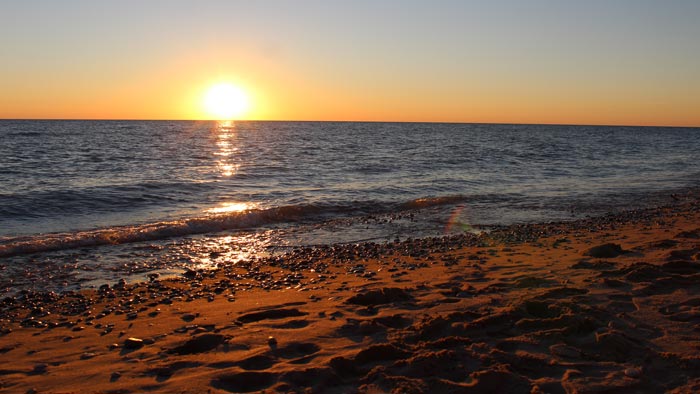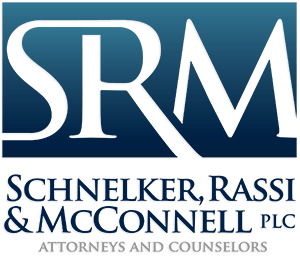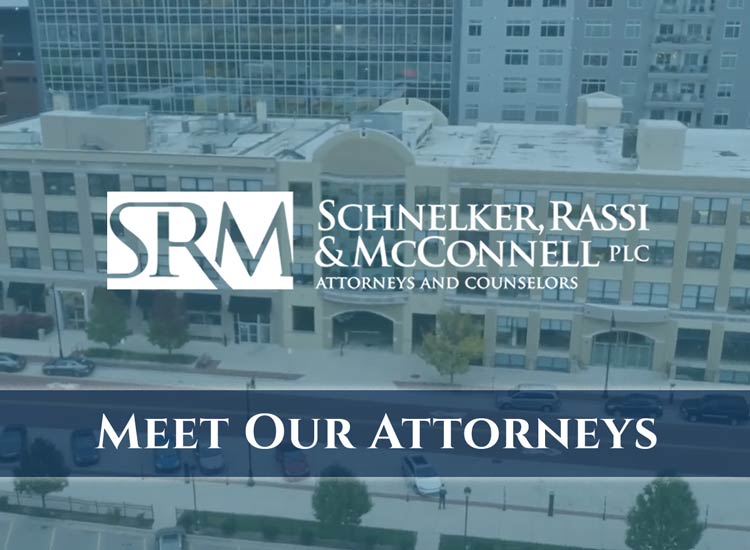Have questions about buying or developing Lake Michigan property? You’ve come to the right place! Our Lake Michigan property attorneys would be more than happy to help you plan your next steps.
Here’s what you need to know about Lake Michigan property. Check out our list of frequently asked questions below.

I have a real estate agent, why do I need an attorney to purchase Lake Michigan waterfront property?
Qualified real estate agents can be a valuable resource to buyers, especially with respect to the purchase of Lake Michigan waterfront property. However, Lake Michigan waterfront property presents a myriad of legal challenges that must be reviewed by qualified counsel.
Development and construction in critical dune areas requires extensive review and approval by the Michigan Department of Environmental Quality, as well as various arms of local government.
Also, Lake Michigan waterfront property, in many instances, has not changed hands for generations. Title may therefore be encumbered by a number of unique easement, parking, and other access agreements that require careful review before making such a large investment.
Many properties are also part of waterfront cooperatives or other unique forms of ownership that can severely limit a desired use for the property and its ultimate resale value.
We work closely with your agent on these issues to make sure that the significant investment you are making is protected and you are able to use it the way you intended.
I don’t have a real estate agent and plan to work directly with a seller to purchase my Lake Michigan waterfront property. Can you help me?
Yes! We often represent buyers and sellers in “sale by owner” transactions because the sale of Lake Michigan waterfront property is often done among friends, relatives, and business acquaintances.
We provide assistance drafting the purchase agreement so that you protect yourself with needed contingencies, have adequate time for inspections and other due diligence matters unique to waterfront property, address financing issues, fairly deal with property tax prorations, provide for obtaining an adequate survey and other purchase agreement terms that you need to consider.
As we would with a broker involved sale, we can review the survey, the state of legal title, and other encumbrances related to the property. We can assist in resolving any such issues.
We will also appear before local zoning authorities on behalf of buyers and owners regarding construction and other use issues. We also work closely with Michigan title companies on the issuance of title insurance and the closing of your transaction.
What does it mean to be in a critical dune area?
Michigan’s sand dunes are a unique natural resource representing the largest assemblage of freshwater dunes in the world. Concern for their preservation resulted in the passage of Michigan’s Sand Dune Protection and Management Act. This statute regulated the sand mining industry in Michigan’s designated sand dune areas by requiring plans for sand removal and restabilization after the mining operation was complete.
As the dunes became increasingly popular sites for recreation, home building, and resort development, the potential for widespread damage and destruction of the dunes became more apparent. For this reason, the act was amended to establish critical dune areas and regulate the development and construction that occurs in these areas.
The act requires a permit for a variety of activities conducted in a critical dune area, including development and construction. Uses are prohibited on certain grade slopes without a variance, and structures are prohibited on the first lakeward facing slope of a critical dune area. Environmental impact assessments are required for special use projects such as subdivisions and site condominiums.
The Michigan Department of Environmental Quality administers and regulates much of this activity, though local authorities can assume permitting authority with MDEQ-approved zoning ordinances. As a result, the permitting and construction process can be expensive, time consuming, and limit your intended use. Because of these restrictions, lakefront property that is not in a critical dune area can be valued substantially higher than property located within a critical dune area.
What is a co-op or cooperative ownership arrangement?
Unlike traditional fee ownership via a condominium, platted subdivision, or single piece of unplatted land, a co-op or cooperative ownership arrangement involves ownership of a share of a larger development on the lakeshore. While exceedingly rare, they are not uncommon in older lakeshore developments.
Essentially, a cottage owned in a cooperative consists of ownership “units” in a non-profit corporation. For example, in an 80-cottage development, each cottage might be worth one unit. If an owner purchases multiple lots or cottages and builds a new, larger cottage on two such lots, the owner would own two units. Each unit is typically worth one vote within the cooperative.
Some cooperatives are structured so that units and therefore votes, are based on the size or location of the parcel owned. In these cooperatives, the larger parcels and the parcels with the most lake frontage will have more votes, and therefore more control, over the cooperative.
One of the major disadvantages to cooperative ownership relates to the ownership and rights of disposition of the parcel owner. In a cooperative, the owner does not hold the fee title to the real estate upon which the cottage is located. It is owned by the cooperative as a whole and the unit holder simply has an exclusive right to the use and enjoyment of the cottage.
Real estate taxes for the entire cooperative are apportioned among the various unit holders in relation to the size, and perceived value, of their respective units in relation to the whole. Because an owner does not hold fee title to the real estate, an owner often cannot dispose of the unit without the permission of the cooperative.
If you are considering a purchase of a cottage that is owned by a cooperative, it is very important to have the cooperative agreements reviewed by one of our property attorneys in order to fully understand the rights and limitations associated with ownership, use, and disposition of a cooperative unit of Lake Michigan waterfront property.
My family would like to purchase a Lake Michigan cottage. Can we purchase it as a “family cottage”? Are cottages typically owned as a family?
Yes. Many parcels of Lake Michigan waterfront property have been owned by one or more family members as a family cottage for generations. Family cottage ownership was traditionally accomplished through “tenant in common” arrangements where each family member owned an equal percentage of fee title to the property.
The drawback to such arrangements related to rights of use. Many families operated on the honor system and had unwritten rules regarding times of use and how maintenance, repair, and other expenses were shared.
Over the years, family cottage ownership of Lake Michigan waterfront property evolved into more complex arrangements where entities were formed to hold title with various family members owning an interest in the entity.
Entity ownership could provide liability protection if the family chose to rent the family cottage for a portion of the year and could also provide a simple gifting mechanism for older family members. In the 80’s and early 90’s, the typical mechanism for this form of was the Family Limited Partnership, also known as a Family LP, and many family cottages are still owned this way today.
Currently, the chosen form of ownership for family cottages is the , also known as a Family LLC. Like the Family LP, a Family LLC is comprised of various family members each owning a share of the entity.
An operating agreement is prepared which dictates the rights and obligations of the members for use of the family cottage, as well as the share of taxes, association dues, maintenance, repair, and other ownership expenses. Like the Family LP, the Family LLC can also provide a gifting mechanism for older family members and place certain restrictions on the disposition of the membership interests to ensure that the family cottage remains owned by the family.
As with any entity form of ownership, the organizational documents, especially the operating agreement, should be prepared by an attorney. If you wish to buy a family cottage that’s currently owned by a family entity, then a careful review of the selling entity’s governing documents should be completed by your Lake Michigan property attorney as well.
What other issues are unique to Lake Michigan waterfront property?
Three words: access, view, and boundaries. Much of the Lake Michigan shoreline has been developed for decades using a hodgepodge of written (and sometimes unwritten) agreements among adjoining owners. Many such agreements were not drafted by attorneys and were the product of friendly relationships among neighbors.
As neighbors sell their properties, strangers move in, and new relationships are not always as rosy and amicable as the old ones—especially in light of the significant investment made in the property. The result is often a lawsuit among neighbors to determine rights. In fact, Macatawa Park in the lakeshore area in and around Holland, Michigan, is one of the most heavily litigated areas in the entire state of Michigan, mainly because of property disputes.
ACCESS
Access disputes typically develop between property owners with Lake Michigan frontage and those owners behind them. A common situation arises when someone purchases property with Lake Michigan frontage and finds that one or more property owners behind them claim a right of access to what they thought was their private beach.
Many times there was an agreement between the prior owner and the adjoining landowners of which the new owner was not aware. A careful review of title work prior to purchase can help avoid this problem.
VIEW
Like access disputes, view disputes usually arise between the owner of property with frontage on Lake Michigan and the owners of property behind them. In the typical situation, a buyer purchases a property without Lake Michigan frontage, but a view of the lake. Later, the owner of the property with frontage commences construction in such a way that the back lot owner’s view of Lake Michigan is impaired, or blocked entirely.
Unfortunately for the back lot owner, absent an agreement to the contrary, there is no legal right to a “view” under Michigan law. Therefore, a purchaser of property with a view of Lake Michigan, but not frontage, should carefully examine any existing agreements with adjoining property owners to ensure the view will remain protected.
BOUNDARIES
Many developments along Lake Michigan have been cobbled together over the decades without formal surveys or planned development. The result of this haphazard designation of boundaries is usually a dispute among neighbors regarding the ownership of certain parts of the property and the right to erect, or continue to maintain, certain structures that may be located across boundary lines.
Similar issues can arise related to rights in designated, and sometimes undesignated, parking areas, wells, and septic systems. Because disputes are so prevalent, a detailed boundary survey which locates all improvements on the property is essential before making a decision to purchase.
Will I be able to keep my Lake Michigan beach private, or will the public be able to use it?
Yes and no. For decades, private property owners and walkers along the Lake Michigan shoreline have disputed to what extent a member of the public could walk along the beach of a private property owner or private association of homeowners. In 2005, the Michigan Supreme Court finally answered the question.
In the case of Glass v. Goeckel, the Michigan Supreme Court determined that the general public has the right to walk along the lakeshore on land below the ordinary high-water mark. The court based its decision on the language of the public trust doctrine and found that walking along the lakeshore is a traditionally protected public right. The court defined the “ordinary high-water mark” as follows:
“The point on the bank or shore up to which the presence and action of the water is so continuous as to leave a distinct mark either by erosion, destruction of terrestrial vegetation, or other easily recognized characteristics. Where the bank or shore at any particular place is of such a character that [it] is impossible or difficult to ascertain where the point of ordinary high-water mark is, recourse may be had to other places on the bank or shore of the same stream or lake to determine whether a given stage of water is above or below ordinary high-water mark.”
The court did not address the public’s right to use a property owner’s beach for activities other than walking, running, etc. In other words, the court did not address whether or not a member of the public could sunbathe on a private beach, make a campfire on a private beach, picnic on a private beach, play volleyball on a private beach, etc. without the property owner’s permission, regardless of whether or not the activity occurred below the ordinary high-water mark.
It is implicit that the public cannot do these things on private property, but know that the court did not address them specifically and do not be surprised if a public person claims such a right in the future, though we believe the risk of anyone prevailing on such a claim to be minimal at best.
Call Our Lake Michigan Property Attorneys
Thinking about buying or developing property along Lake Michigan? Your first step should be to contact one of our experienced Lake Michigan property attorneys in Grand Rapids, MI. Please contact either Jason Schnelker or Andrew Rassi from our Lake Michigan practice area. If you are involved in litigation related to your ownership of Lake Michigan waterfront property, please contact Wade McConnell. You may also request a meeting through our website.


